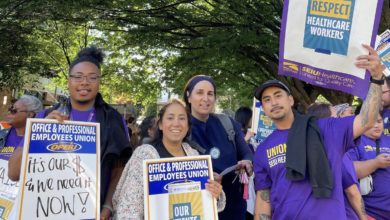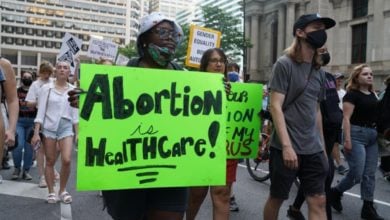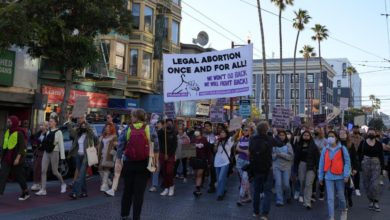The life of a child is precious. The life of a woman is equally precious. The quality of life for both are stifled by politicians who continually gut public health programs, education, and access to safe, affordable housing. The legality of abortion procedures has been determined, in very large part, by wealthy, white men most recently exemplified by Todd “legitimate rape” Akin, and Richard Mourdock who explained he is against abortion even in the case of rape because:
“…life is a gift from God. And I think even when life begins in that horrible situation of rape, that it is something that God intended to happen.”
The hypocrisy of lawmakers will always come to light as with the case of virulently anti-choice Rep. Scott DesJarlais (R-Tenn), who with his ex-wife mutually agreed to terminate two pregnancies. He also pressured another woman with whom he was having an affair to have an abortion. This is not a moralistic debate about “the right to life.” It is a debate about resources. Politicians have shown time and time again that they don’t want to make resources available to women who can’t afford them.
What happens to women who cannot get an abortion?
In 2012 a longitudinal study tracked what happens to women who wanted an abortion but cannot get one. Public health researchers at the University of California San Francisco group Advancing New Standards in Reproductive Health are two years into a five year longitudinal study in which they are following 956 women who received or sought an abortion from 30 different clinics, 182 of whom were turned away because they were a few days past the gestational limits set by the local clinic.
One of the main reasons the women chose to seek abortion was economic. This should not come as a surprise given that 42% of women who seek abortions have an income below the official poverty line. Of the turnaways, 11 percent put their child up for adoption; 76% were on public assistance one year after giving birth and 67% lived in official poverty. Of those who were able to control their own bodies, 44% were on public assistance one year later and 56% were below the poverty threshold. Of the turnaways 46% had full-time employment as opposed to 56% of women who had abortion access.
The study also found that 7% of the turnaways were more likely to remain in an abusive relationship and have experienced abuse with the last 6 months, compared to 3% women who had received an abortion.
Unsurprisingly, the study found that women who were able to terminate their pregnancies suffered fewer health risks. Even the process of having a late term abortion is far less dangerous than the process of bearing a child. The data contradict the myth that women who seek abortions will later suffer from depression or thoughts of suicide. The Turnaway Study found no indication that abortion was linked with increased mental health disorders. There were no statistical differences between turnaways and women who had abortions when it came to developing clinical depression. This is especially significant in light of the July 2012 decision where the 8th Circuit of Appeals upheld the “suicide advisory” component of South Dakota law, which requires doctors to advise women seeking abortions that they face an increased risk of suicide after the procedure.
The case of Savita Halappanava
Meanwhile the truth is that on October 28, 31-year-old Savita Halappanavar died of septicemia, or blood poisoning, a week after she was denied an abortion. Halappanavar was 17 weeks pregnant and living with her husband in Ireland. She was in the process of miscarrying when she begged the doctors to terminate the pregnancy that she was already losing. The devastated mother-to-be had come to grips with the fact that she was going to lose her child and was in immense physical pain. The doctors, citing the Catholic law of Ireland, told Savita that they could not terminate the pregnancy and that she would have to wait until the fetal heartbeat stopped before they could do anything to help her. The death of Savita Halappanavar has triggered massive protests in Ireland for women’s reproductive rights.
It is important to understand that, although it is socially significant, no amount of scientific evidence with regards to abortion access will change the discourse of the politicians who draft and vote on abortion legislation. It is more than obvious—when listening to right-wing representatives or watching Obama use abortion access as a bargaining chip for passing his own financial agenda—that this has never been about women’s health to the politicians.
We must use the research to educate our sisters and brothers and unite us in action to defend women’s rights—not only with regard to access to safe abortions, but to healthcare, housing, jobs, and access to child care. The presence of a united, organized and fighting women’s movement on the streets is what is needed to defend and extend the rights that women need.






